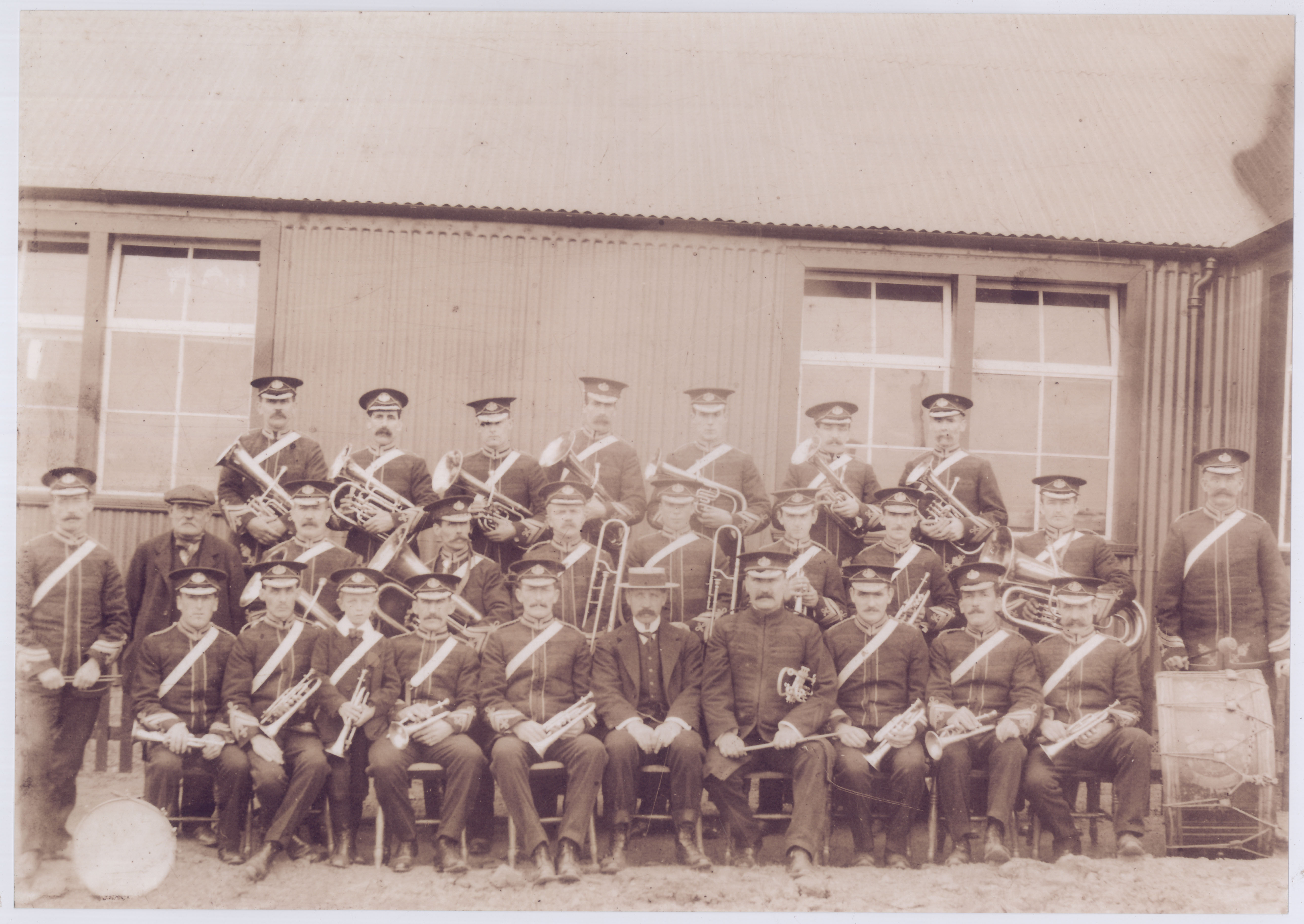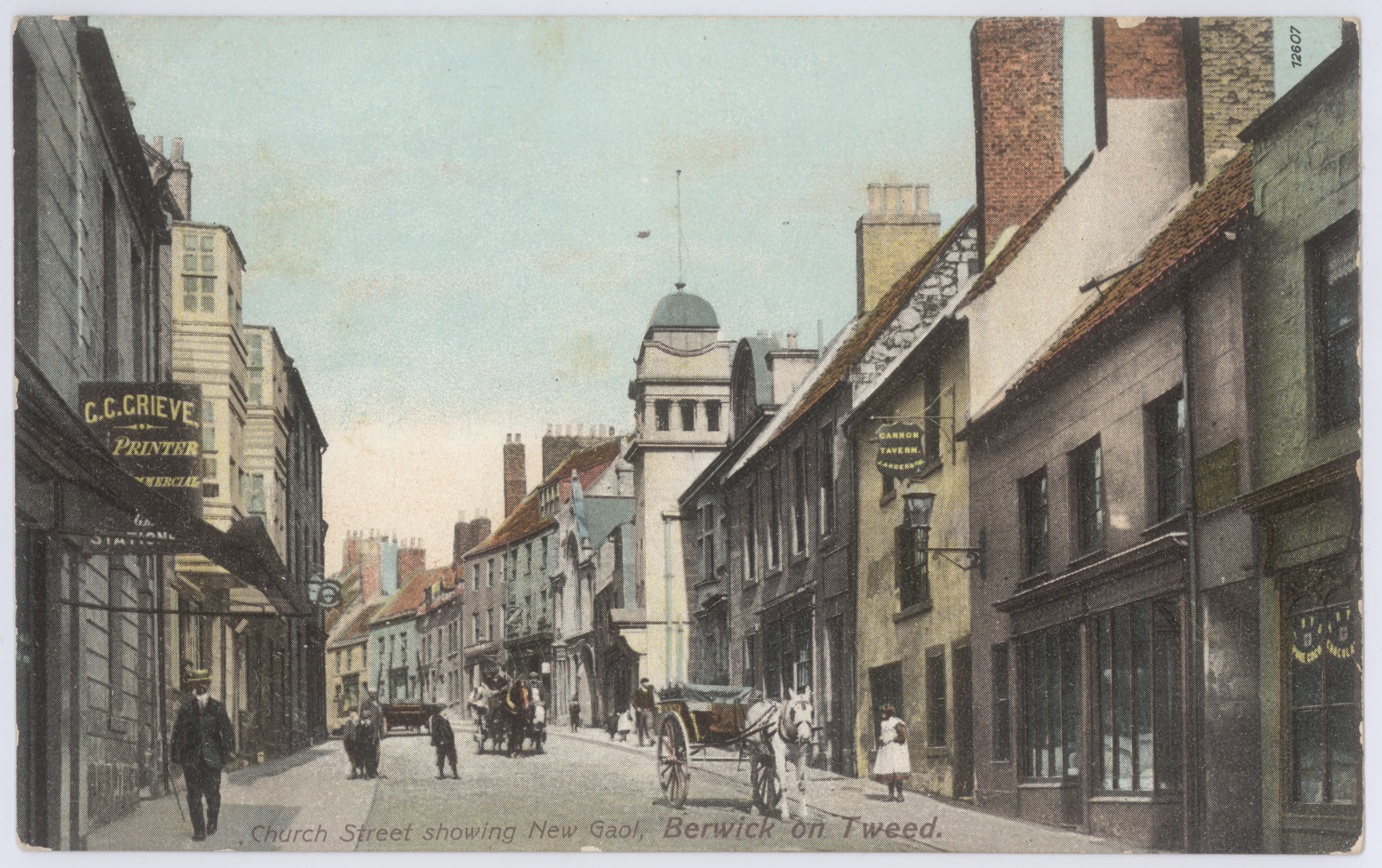
37 YEARS’ SERVICE IN POST OFFICE
MR CLEM. BINGHAM RECEIVES THE IMPERIAL SERVICE DECORATION
Thirty-seven years represent a big slice of a man’s life, but these spent in good fellowship, may not take so much out of one as might be expected. For this period Mr Clem. Bingham has acted as a postman in the Borough, and in all weathers, residents have heard his cheerie call as he delivered his rounds.
Clem is one of the old school, and it is with feelings of sadness that those still in the Post Office Service who served along with him in the time of Postmasters Wilkinson, Jones and Franklin, see him going into retirement through illness. For some time prior to retiring he had not been in the “pink,” and only managed to go on his rounds with difficulty. The only course left open to him was to sever his long connection with the Post office Service, a work which to him had become part of life. A son of the late Mr Bingham, Low Greens, Berwick, “Clem,” since entering the Post Office has had an unblemished career. He speaks of the happy days spent in the old office, then situated on the site of the A. and B. Garage, and amongst his most pleasant memories are the days he spent in the comradeship of old “Joe” Ferrah, Dick Cockburn, and Jimmie Byrne. He had also, some humorous stories to tell of his old postmasters, one especially being about one of his masters who tried pig keeping, with so little success that his “grumphies” were one day mistaken for whippets.
The Imperial Service medal which comes to all “posties” who serve honourably and well, at length has come Mr Bingham’s way, and on Friday evening, surrounded by his fellow postmen and lady and gentleman clerks from the instrument room and counter, he received the decoration from the hands of Mr Snowball, Postmaster.
BELFORD DISTRICT
ON LEAVE
We were very pleased to see Privates Thomas and John Hunter, both of the D. L. I., home on leave from Germany quite recently. These two gallant boys are the sons of Mr and Mrs Hunter, North Lyham. Prior to May 1918 Mr Hunter and his boys were employed by Mr Blenkinsopp, Ross Farm, and might perhaps have been so yet had the manly spirit of the boys not been so persistent.

North Lyham area of Northumberland
© Graham Robson – Creative Commons Attribution-ShareAlike 2.0 Generic (CC BY-SA 2.0).
In March 1915 Privates Hunter informed their father that they were going to the Army in the following May, the younger boy having then attained military age, and no obstacles being put in their way, they went and got their training in, and out to France and over the top a few times before the Armistice was signed. Both boys have greatly improved in appearance since joining up having become quite manly-like and from their conversation one might almost believe they had never experienced a single hardship. Mr and Mrs Hunter ought to be proud of their brave young sons. May the best of good luck be theirs.
LOCAL NEWS
This year the Berwick Rowing Club celebrates its Jubilee. This Club started with a membership of thirty at a meeting held on Monday, 18th January, 1869, in the King’s Arms Hotel, and presided over by the late Mr William Miller. The rules of the London Rowing Club were adopted. Later Mr .T. Carter was appointed Secretary and Treasurer, and the late Mr W. Young was elected Captain, and Mr E. Willoby a member of committee. The season was started in June, when the newly purchased Foy Fours arrived from Newcastle. A Regatta was held on 7th September when a silver cup for a race with Foy Fours and a pair of silver sculls for a race with two skiffs, presented by Mr Watson Askew, were competed for. It will be interesting to note also that the present President (Mr Alex Darling) was a coxswain that year. The Club starts operations for this year on Wednesday first. At a Committee meeting on Wednesday three new active members were elected. The pre-war Committee continues in office, with Mr H. R. Smail as Captain, and Mr J. Cairns as Hon. Secretary. Great credit is due to the latter, the President and Mr W. J. Dixon for having “carried on” during the war in the absence of over 90 per cent of the members on active service.
The first cargo of deals and battens to be discharged at Tweed Dock, Berwick, arrived with the Swedish steamship Munkfors this week, and although the cargo is small in comparison to those landed in pre-war days, still it is a sign that normal conditions are coming again. The wood has been shipped from Skoghall, Gothenburg, and is for Messrs Allan Brothers, Tweed Saw Mills.
The British nurse has helped to win the war, and there is scarcely a home in Great Britain that does not owe a tribute to her care of the wounded. The nursing profession tests the endurance of its members very severely, and during the war many nurses have contracted serious maladies, such as loss of sight, injury to limbs, nervous breakdown, etc.

World War One nurses and midwives recruitment poster. © Imperial War Museum (Art.IWM PST 14581).
An effort is now being made to raise sufficient money to enable the College of Nursing to make provision for the nurses who have suffered through the war. The Nation’s Tribute for Nurses takes the form of a Thank-offering fund with Viscountess Cowdray as Hon. Treasurer, and Miss C. May Beeman as Hon. Organiser. A large sum is aimed at, and all over the country money is being raised. Berwick V.A.D.s not to be behind hand held a most enjoyable dance on Thursday, 1st May to raise funds. The Artillery Hall, Ravensdowne, was kingly granted free by Major Graham, Officer Commanding 4th V.B.N.F., who also sent a donation of £5. Among those responsible for the arrangements were: Miss Anthoney, Commandant: Mrs Scarlett, Mrs Copperthwaite, the Misses Caisley and Kennedy. Music was supplied by Miss Jobson, Miss White and Mr Davidson, violin. The duties of M.C. were capably discharged by Messrs Scobie and Renwick, and Mr J, Wilson also rendered great assistance. A sum of £25 will, it is hoped, be handed over. The members of the V.A.D. are endeavouring to make Berwick’s contribution up to £50 by means of “Wheel of Gratitude” collecting cards.
BLASTING ACCIDENT AT TWEEDMOUTH
A CHARGE WHICH HUNG FIRE
On Friday morning, 2nd May, a blasting accident which might easily have been attended with more serious consequences, took place in the Quarry owned by Mr A. D, Watt, Tweedmouth, resulting in rather server injuries to a miner named Robert Drysdale, whose home is in Blakewell Road.
It appears that Drysdale, who is employed making “shots” at the Quarry had made a charge which for some reason hung fire. Drysdale thinking the squib had failed walked forward to fix another when the charge suddenly exploded, knocking him down and inflicting severe wounds on the hands and head.
He was removed to Berwick Infirmary, where five of his fingers were found to be so seriously hurt that amputation was necessary. He is going on as well as can be expected.












